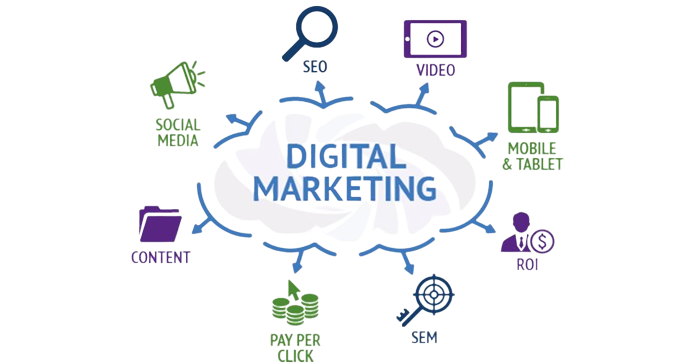Digital marketing encompasses a wide range of online marketing activities that leverage digital channels and technologies to promote products, services, or brands, and engage with a target audience. It is a dynamic and ever-evolving field that plays a crucial role in today’s business landscape. Here are some key components and strategies within digital marketing:
Search Engine Optimization (SEO):
SEO involves optimizing your website and online content to rank higher in search engine results (e.g., Google). This is achieved through various techniques such as keyword research, on-page optimization, link building, and content creation.

Content Marketing:
Social Media Marketing:
Email Marketing:
Pay-Per-Click (PPC) Advertising:
Affiliate Marketing:
Influencer Marketing:
Online Public Relations (PR):
Analytics and Data Analysis:
Mobile Marketing:
Video Marketing:
Chatbots and AI:
E-commerce Marketing:
Local SEO and Marketing:
Marketing Automation:
Digital marketing is a dynamic field, and success often requires a combination of these strategies tailored to your specific business goals and target audience. It’s essential to stay updated with the latest trends and technologies in digital marketing and adapt your strategies accordingly to remain competitive in the online marketplace.